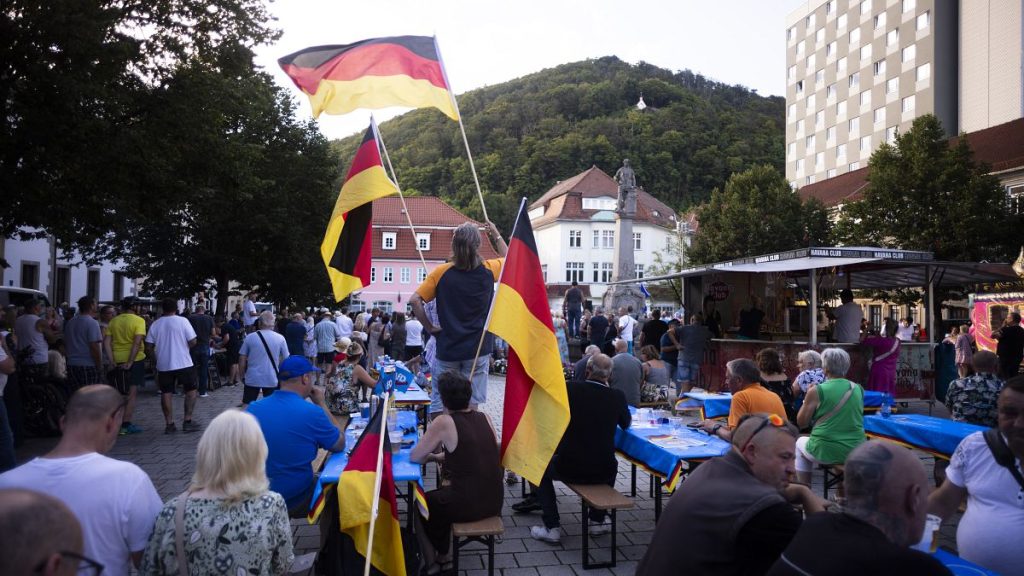In the cities of Zittau and Görlitz in Germany’s Saxony state, there is a noticeable exodus of young people seeking better prospects in larger cities like Dresden and Leipzig. Abandoned houses with boarded windows line the streets, a result of the population decline. The upcoming September elections are expected to have a significant impact, with the far-right Alternative for Germany (AfD) and the far-left party Sahra Wagenknecht Alliance (BSW) gaining traction in the polls. The center-right Christian Democrats (CDU) have governed the state for the past seven years, but the rise of the AfD is causing concern among local businesses.
Local business owner, Tuomo Neumann, expresses the challenges faced by young people in finding opportunities for apprenticeships due to the lack of industry in the area. With doctors retiring and no one to replace them, there is a sense of dissatisfaction among residents. The rise of the far-right in the region, along with anti-government demonstrations, has resulted in a vicious circle where violence and unrest push more people to leave the city, leading to further stagnation. Neumann emphasizes the need for tougher actions against violent groups to make the city more attractive for young people to stay.
The fear of a potential coalition between the far-right AfD and BSW parties after the elections is a concern for Neumann and other business owners. Both parties advocate for controversial policies such as halting weapons deliveries to Ukraine and taking a tougher stance on immigration. The uncertainty about future funding for essential initiatives and organizations adds to the anxiety among local businesses. Despite efforts by parties like BSW to strengthen culture and education, it may not be enough to address the underlying issues driving people towards extremist parties.
In the town of Görlitz, similar sentiments of disillusionment with mainstream parties and the rise of far-right populism are prevalent. Tour guide Frank Vater points out the danger of major parties adapting far-right policies in response to populist sentiments. While Görlitz has seen some positive developments in recent years with an increase in population, the unrest and support for the far-right remain perplexing. Anger towards the federal government is affecting local politics, with issues being amplified and blamed on immigrants and politicians.
Local and federal issues are seen as interconnected by some state politicians, who aim to use the upcoming elections to influence policymakers in Berlin. The desire for peace and dialogue over war is a key message being sent by parties like BSW. Vater emphasizes the need for individuals to take responsibility for solving issues rather than blaming politicians or immigrants. He draws parallels between the motivations of people leaving the former East Germany for the West before reunification and the reasons for migration today, highlighting the universal desire for a better life.
Overall, the challenges faced by cities like Zittau and Görlitz in Saxony reflect broader socio-economic and political issues in the region. The rise of far-right parties, dissatisfaction with mainstream politics, and concerns about funding for essential services are contributing to an atmosphere of unrest and uncertainty. As the September elections approach, the outcome will have a significant impact on the future direction of the region and the ability of local businesses and residents to address the underlying issues driving the exodus of young people and the rise of extremism.













